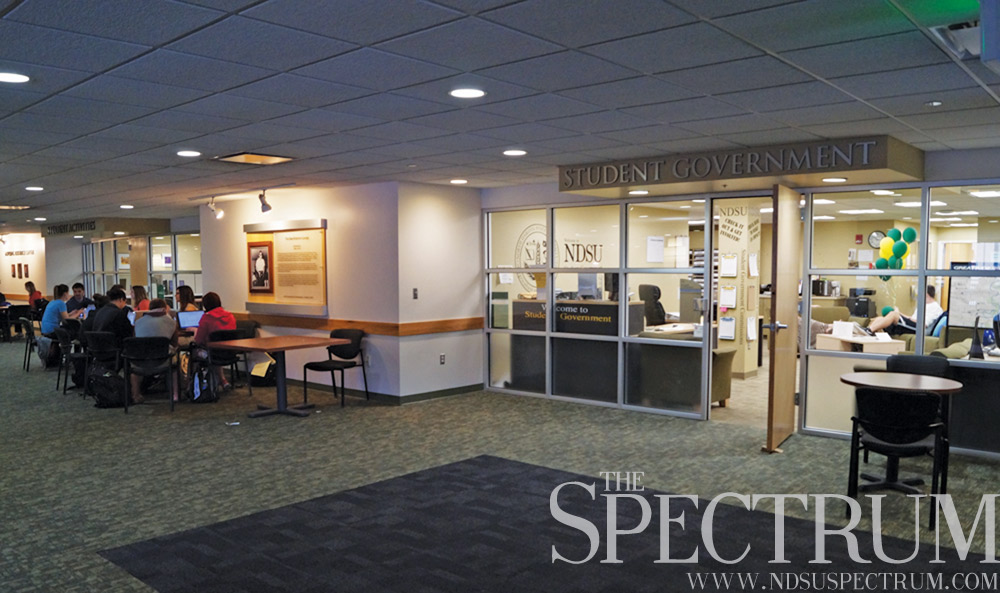
The 2016-17 North Dakota State student body may pay more fees if recent proposals are passed.
Student fees are poised to go up over $100 per semester, or $8.76 per credit. Student body president Eric McDaniel said he welcomes feedback before action is taken, saying students should voice their opinion.
Pending fees include the technology fee, the student activity fee, a fee from North Dakota Student Association and the wellness fee, which incorporates the student health services fee.
The wellness fee has a proposed increase of $5.59 per credit, of which $3.33 would to the student health services fee and $2.26 would go to the wellness center fee.
The technology fee has a proposed increase of $0.50 per credit; the student activity fee has a proposed increase of $2.66 per credit and the North Dakota Student Association fee has a proposed increase of $0.01 per credit.
In the 2015-16 school year, students are paying $50.66 per credit for these fees, but if all proposed increases pass legislation, students would be paying a total of $59.43 per credit in these fees, amounting to an extra $8.76 per credit.
A full-time student with 12 or more credits would see an increase of $105.12 per semester.
What’s behind them
The technology fee increase would go to further support running current NDSU technology programs such as Blackboard and GoPrint.
Thirty classrooms are projected to be refreshed and updated with technology. This fee increase would also be used to pay student salaries in the IT department.
Private sector jobs are paying higher wages and becoming more accommodating to student schedules, so this fee is proposed to help NDSU remain in competition for IT jobs performed by the best personnel with private sector competitors.
The main reasons for increasing the student activity fee are that the Memorial Union is currently understaffed, Campus Recreations would like to use an increase of funds so as to make better use of the new aquatic center and that Tier II organizations typically receive funding from student government to support their organizations. However, student government has run out of funding for these organizations, McDaniel said.
Reasons for increasing the student health fee would be that no additional funds have been appropriated to benefit student health services since 2010, and budgets are expected five to six years without increase, which is the current trend organizations around NDSU are on, McDaniel said.
The NDSA fee increase is out of direct control of student government, as that fee is controlled outside of NDSU through the NDSA.
The wellness fee increase is primarily to benefit the new Aquatic Center, McDaniel said. Student fees had increased in the past to support constructing the Aquatic Center, and now more fees are needed for upkeep and maintenance of the facility.
“If students don’t want to pay the extra money, they won’t get extra services,” McDaniel said. “It will just stay status quo with what it is.”
Timeline
There is a 1 percent cap on tuition increases per year that a North Dakota university may place on its students, as per North Dakota State Board of Higher Education rules.
If all expected fee increases are fulfilled, the SBHE would need to approve of fee raising.
The next meeting for the Student Fee Advisory Board, which advises President Dean Bresciani on confirming fee increases, is Feb. 3.
Student government needs to have all fee raise requests into Chancellor Mark Hagerott by Feb. 25. Approval of the fee raises will be confirmed by the SBHE in March.
Student input
Student government is holding open forum events in the Memorial Union’s Century Theater for students to openly give feedback regarding pending fee increases.
Separate forums will be held for different fees.
A forum will be held at noon Jan. 21 for concerns about the technology fee increase. Another forum will be held at 11 a.m. Jan. 22 for the student health services fee, and another will be held at noon Jan. 22 regarding the student activity fee.
Additionally, an alternate session forum will be held at noon Jan. 25 for students who were unable to attend one of the other three forums.
Most importantly, students are urged to give feedback, McDaniel said.
“Always stop by the student government office; let us know your thoughts… we just need as much feedback as we can get,” he said.
Jack Dura contributed to this story.
